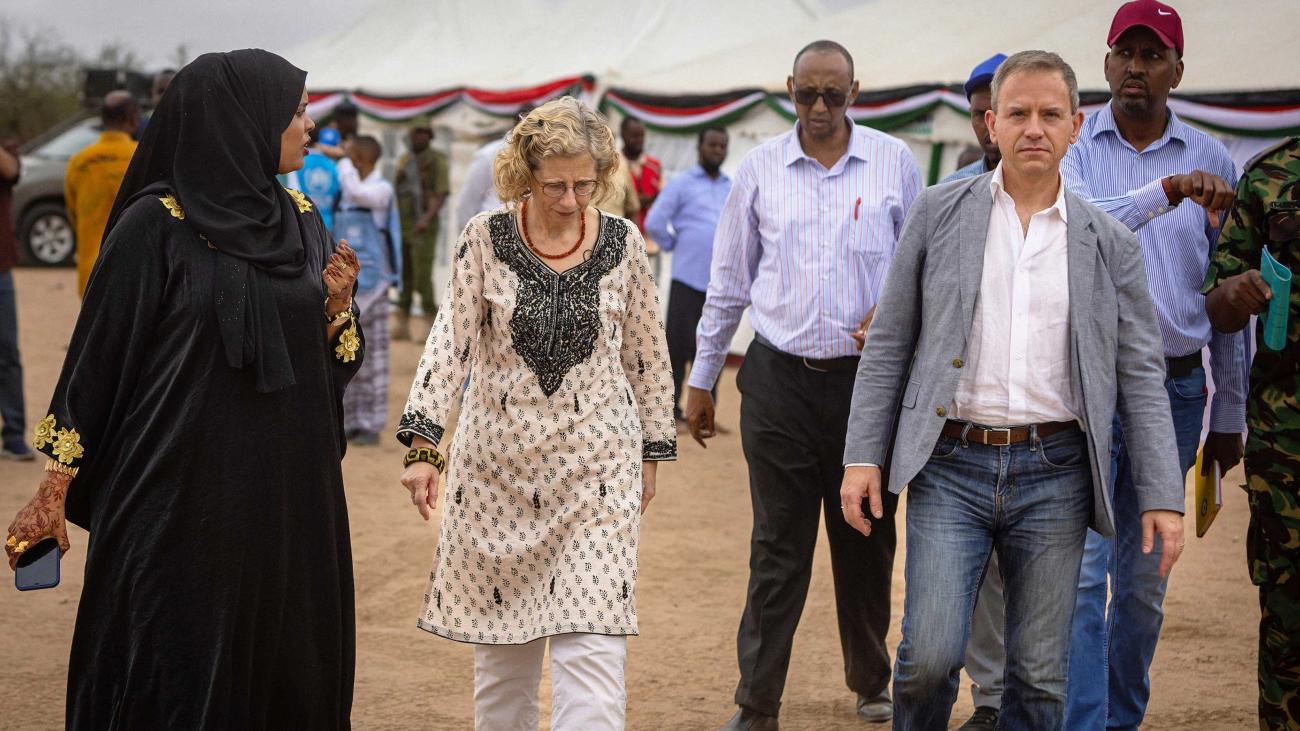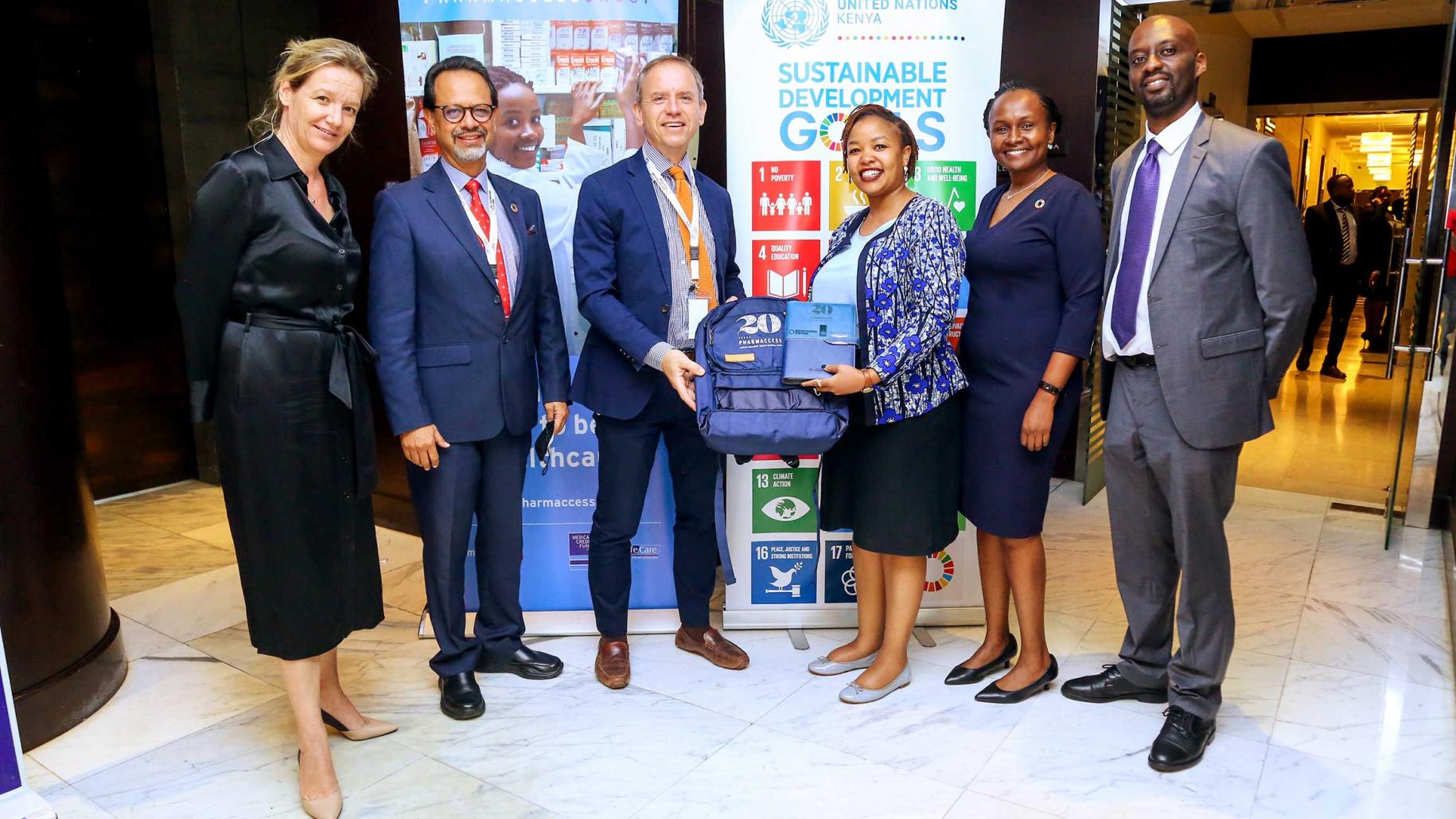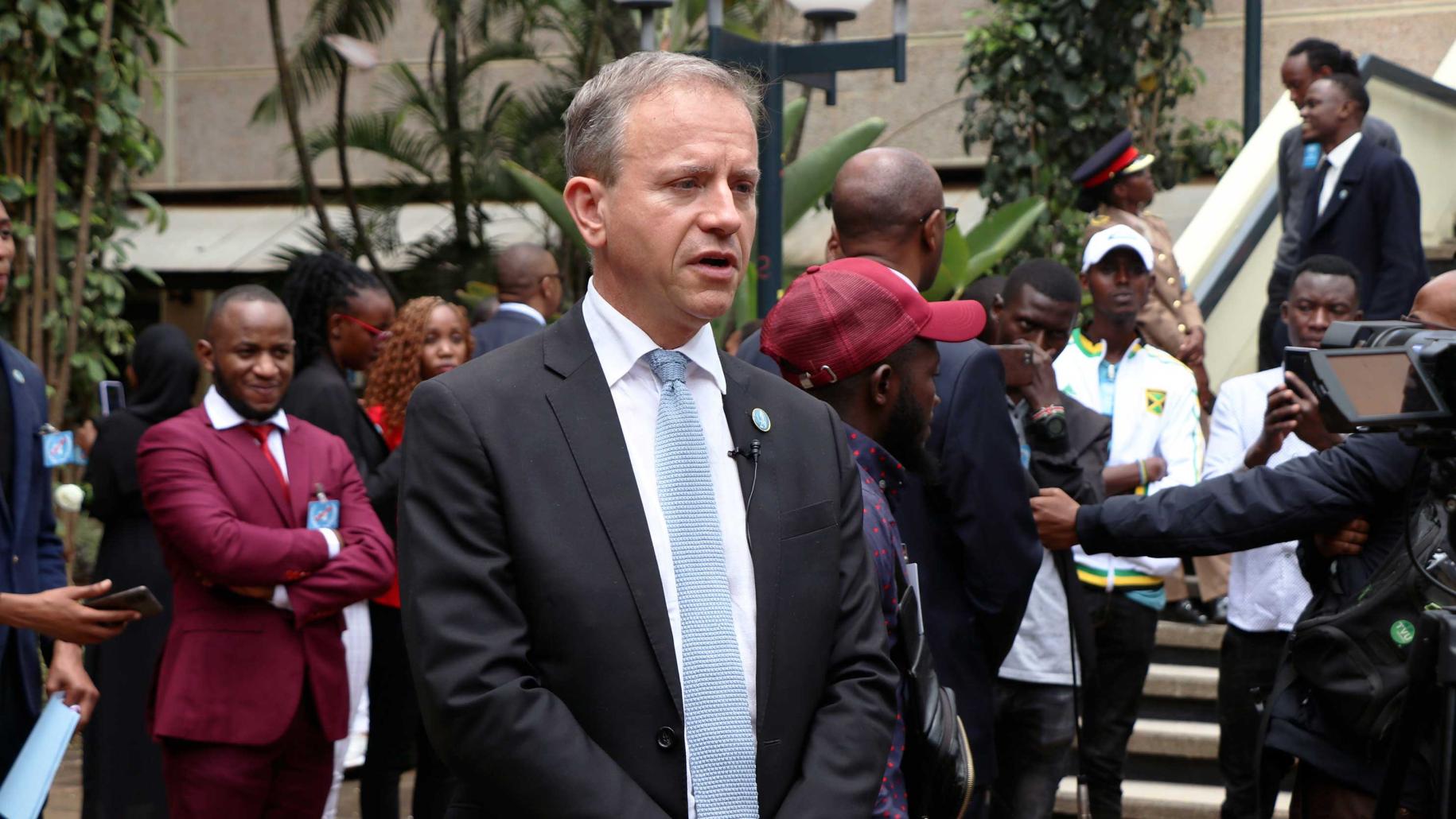To Kenya, with love: RC Stephen Jackson on the country's upward development journey

Since his first visit to Africa over three decades ago, Stephen Jackson, the UN Resident Coordinator in Kenya, ‘fell hard’ for the entire continent. From his time interning as a young student at an NGO in Nairobi, to the challenges of working in Rwanda in the aftermath of the genocide, and onto his current role supporting Kenya reach its full development potential, the RC has experienced firsthand the resilience, drive and diversity of the African continent.
In a recent podcast interview ‘Awake at Night’ with the UN Under-Secretary General for Global Communications, Melissa Fleming, Stephen reflects on his journey towards becoming UN Resident Coordinator in Kenya, and how, despite the promise of Kenya’s rapid development, he’s still kept awake at night by the risks of failure.
Africa beyond clichés
"I think you fall in love with Africa, and you fall in love hard. I've always loved it.There’s the fascination of it because this is a part of the world, that despite the clichés, despite the stereotypes that many I think would have in the Global North, this is a continent that is going places superfast. It’s a very exciting thing, and it's a real privilege, to be a small part of that journey."
"Kenya is a country that is on an extraordinary upwards curve, a very rapid one. The country is bigger, more powerful in the positive sense of that word. More influential on the continent and in the world. Its voice is being heard at the global level. I think Kenya will continue on that trajectory."
Stronger than the sum of our parts
"We have 25 UN agencies, funds and programmes in our UN Kenya Country Team: an alphabet soup that runs from the Food and Agriculture Organization, all the way to UN Development Programme, UNICEF, the World Health Organization and many more.
It’s my job to bring the energies and the expertise of the whole United Nations system together to make sure that the support that we offer to Kenya’s government and Kenya's people is greater than the sum of its parts. But it goes beyond that..You have to use your expertise, but also your weight to influence the flows of much bigger forms of development. The kinds of development financing that is delivered by the World Bank, the International Monetary Fund, the big vertical funds, but particularly the private sector. What we're trying to do is to really crowd in that kind of engagement for the Sustainable Development Goals."

Kenya’s national peace infrastructure
"[Last year] we had a knife edge close election in Kenya. It’s a country that has had its brushes with difficult elections in the past, and quite large-scale electoral violence. And yet, it was one of the cleanest, most orderly, most transparent elections ever in Kenya. The result was a difference of about 200,000 votes, and yet, the country remained peaceful. The challenge that was brought by the opposition was definitively settled by the Supreme Court. Every institution did its job.
Kenya deserves a lot of credit for it. The 2010 constitution really lays out that institutional map in a way that I think is very visionary. To take proactive steps to maintain peace; to maintain national cohesion; to have grievance resolution mechanisms; to have ways of ensuring that difference and dissent don't turn into violence. That’s the genius of Kenya's constitution. I don't know too many countries around the world that have this, what we call a national peace infrastructure."
Seizing every opportunity
"I would hate it if we didn't maximize every opportunity that we have to help advance that story. Kenya deserves it. And I think middle powers like Kenya really are needed to help shape the global trajectory. The climate emergency. Where are the solutions going to come from? If you look at the African continent, you'll see a continent with the greatest natural endowment of renewable energy resources anywhere in the world. Whether you're thinking solar, hydro, wind, geothermal, wave."

Witnessing suffering that leaves a mark
"My experience working in the aftermath of one of the world's worst genocides in Rwanda has shaped my professional life, and it's also shaped my outlook on life. I don't take it for granted that any country in the world is beyond conflict. I don't take it that any country in the world is immune from the kinds of meltdown that happen to be afflicting right now, 25 countries or so in the world, but could just as easily happen again in parts of the world that are at the moment at peace. I think that does shape my philosophy about first of all, what life is and the beauty but the fragility of life. You can't, as a young person, as I then was, see that kind of suffering and destruction without it leaving a very deep mark. Reconstructing in my mind the vivid nature of that kind of suffering- it reduces me to tears in a second 30 years later."
This piece was adapted from an interview on the Awake at Night podcast. It has been edited for clarity. You can read the full transcript here. To learn more about the work of the UN in Kenya visit kenya.un.org













